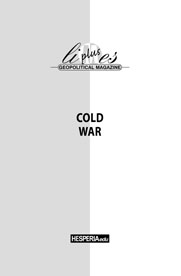THE CROSSROADS: IMAGINING RUSSIAN RENAISSANCE FROM MORNINGSIDE HEIGHTS
THE CROSSROADS: IMAGINING RUSSIAN RENAISSANCE FROM MORNINGSIDE HEIGHTS
Author(s): Alexander MirkovicSubject(s): Cold-War History, Eastern Orthodoxy, History of Religion
Published by: HESPERIAedu
Keywords: Florovsky; Orthodox Church; Russia; Russian Religious Revival; Renaissance; West; St Vladimir Theological Seminary; Morningside Heights; Hellenic heritage; Church Fathers; Cold War
Summary/Abstract: This paper looks at Georges Florovsky, an influential religious historian, philosopher, theologian, and his ideological transformations as he came to New York City in 1948, in particular to Morningside Heights, to be a professor of Church history and dean of the newly founded St Vladimir Theological Seminary. At Morningside Heights, where a good number of various theological seminaries were located, Florovsky formulated his vision regarding what went wrong in Russia in 1917 and what needed to be done to get Russia back on the right path. Florovsky’s ideas prefigure the critique of European Enlightenment and its Orientalist attitudes that were formulated in the 1970s by Edward Said. Florovsky argued that Russia gave up its own Hellenic heritage of Church Fathers, and replaced it with the trajectory of the Renaissance of ancient Hellenic philosophy in Western Europe. The remedy for this condition, which Russians imposed on themselves, was “the return to the fathers,” establishing a direct philosophical connection with Russia’s Byzantine and Hellenic heritage, thus by-passing the Western Renaissance. For this revival of Hellenic Late Antiquity Florovsky is most remembered in the world of Orthodox culture. The idea of Hellenic patristic revival had also run into some problems at Morningside Heights, specifically in the World Council of Churches and with the Union Theological Seminary, which was hosting St Vladimir Seminary at the time. Florovsky, always more focused on Russian and Orthodox issues that on the issues of ethnic identity in America, misread the changing political situation in the late 1950s. American theology was becoming influenced by Reinhold Niebuhr, who was more interesting in improving the world by fighting sin thought progressive social action, then in the niceties of Church History and the esoteric issues of doctrine. The new American priorities were the homogenization of ethnic churches into a progressive union, achieved under President Kennedy. Florovsky’s ideas about the Russian religious revival, once popular at the height of the Cold War now seemed dated. Thus, Florovsky was removed Pom the deanship of St Vladimir Theological Seminary in 1955 and a more Americanized generation took over the leadership of this very important theological and intellectual institution in the Orthodox world.
Journal: LIMESplus
- Issue Year: 2013
- Issue No: 1
- Page Range: 91-107
- Page Count: 17
- Language: English

